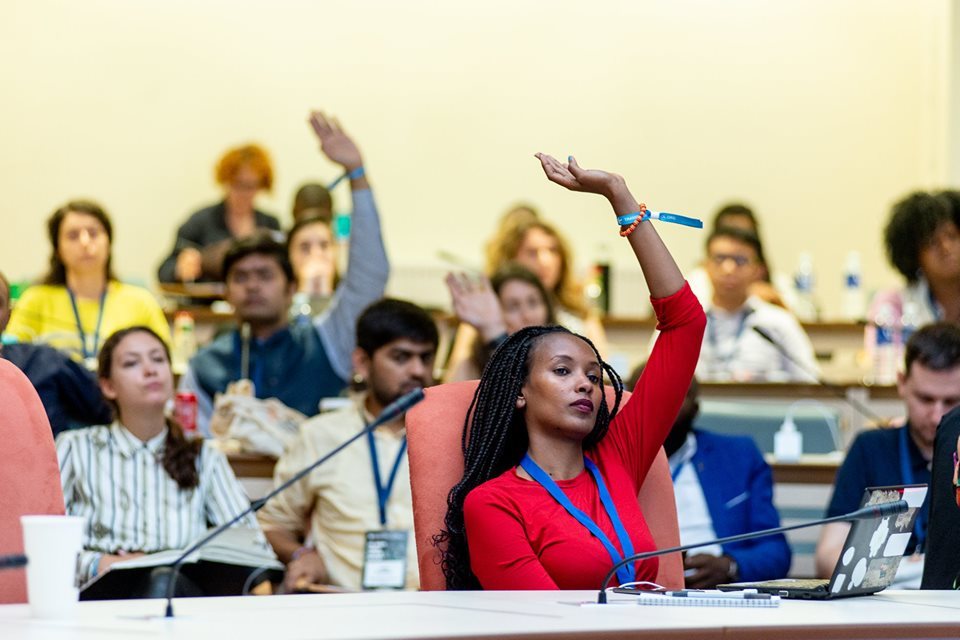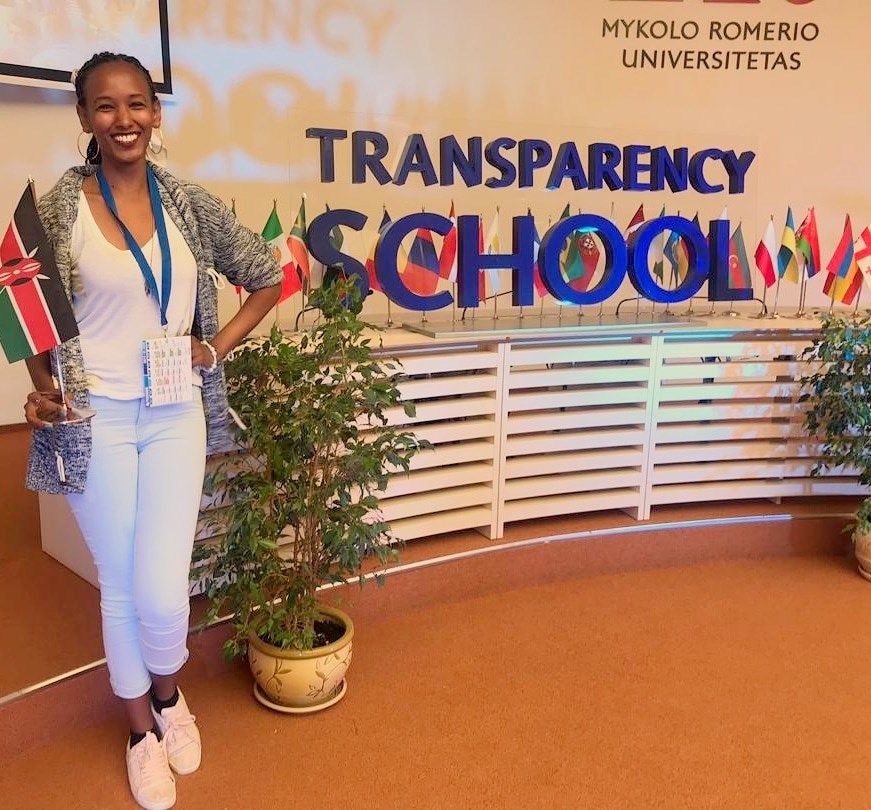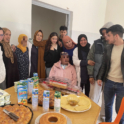Maryame has taken the lessons learned from her exchange year to make a difference in her community.
STORIES
Anti-Corruption Training in Lithuania

By Leah Tesfamariam (YES 2009-2010, Kenya, hosted by ACES in Toledo, OH)
My YES exchange year in Toledo, Ohio was incredibly enriching and shaped my world view in many ways. It made me global citizen and gave me the capacity to be a leader in a multi-cultural environment. Through community service projects at the Helping Hands of St. Louis soup kitchen and Otterbein Nursing Home in Toledo, I learned the value of volunteerism. After my exchange year, I went on to volunteer in Rwanda with HIV/AIDS awareness in addition to implementing many community service projects in Kenya. Volunteering taught me to take responsibility and action for issues on which I wanted to see change. Much of my volunteer work has been centered on women’s empowerment. Living with four host sisters and a very hardworking host mother, I came to appreciate the tenacity and industrious nature of women, setting me on a lifelong mission to uplift other women. A visit to my Ohio Senator’s office and the Kenyan Embassy in Washington, DC influenced my decision to pursue undergraduate university studies in International Relations and Diplomacy. Currently, I am a master’s student in Democratic Governance and Civil Society at the University of Osnabruck in Germany.

One aspect of democratic governance that greatly interests me is anti-corruption and human rights. Corruption negatively impacts the enjoyment of all human rights – civil, political, economic, social, and cultural – as well as a country’s capacity for advancement. By diverting funds from state budgets, corruption undermines a state’s obligation to maximize available resources for the progressive realization of human rights recognized in Article 2 of the International Covenant on Economic, Social and Cultural Rights. Corruption impacts a state’s ability to deliver public services, including a functioning judiciary, law enforcement, health, education, and social services. Disadvantaged groups and vulnerable persons suffer disproportionately from corruption. They are often more reliant on public services and goods and have limited or no access to private services. Corruption is a symptom of wider governance flaws and is likely to thrive in conditions where accountability is weak and individual people have too much discretion.

With the support of a YES alumni grant funded by the U.S Department of State, Bureau of Educational and Cultural Affairs, I attended the Transparency International School on Integrity’s training program on Anti-corruption and Accountability in Vilnius, Lithuania in July 2019. The training, which was organized in cooperation with Mykolas Romeris Law School, added great value to my degree in Democratic Governance and Civil Society. The curriculum was presented through a variety of learning modules, including lectures, seminars, discussions, field trips, film screenings, and social events, and it covered the public sector, private sector, and civic empowerment tools. The course taught me how to stand against corruption and achieve greater transparency in my country.





